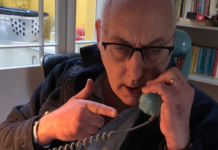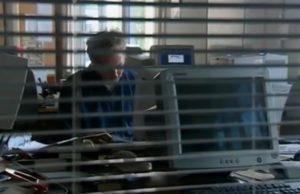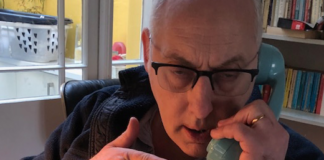- Fight club - 5th March 2026
- Polls apart - 4th March 2026
- Repeating on you… - 4th March 2026
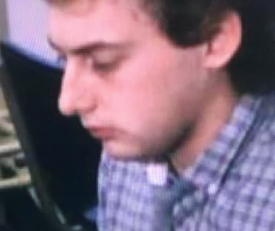
During 23 years with The BBC, and a 41 year journalistic career (when he was trained to use clear and simple language, avoiding jargon), for our Editor, Welshman Phil Parry spotting key trends and anachronisms early was crucial, and now this is highlighted by news that moves are underway today to change the honours system because references to the ‘Empire’ are seen as outdated in the modern world.
People are honoured by giving them the ‘Order of the BRITISH EMPIRE OBE’ ‘Member of the BRITISH EMPIRE MBE’ etc.
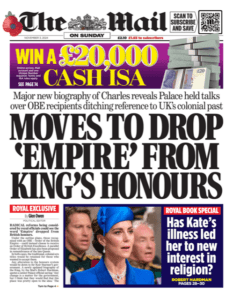 But now there are moves to create new ones with ‘EMPIRE’ replaced by ‘EXCELLENCE’,
But now there are moves to create new ones with ‘EMPIRE’ replaced by ‘EXCELLENCE’,
This could reflect public unease about these monikers after all that has been uncovered concerning imperialism, and following the outrage over the murder of George Floyd sparking, as it seems to have done, a renewed belief in black empowerment as well as equality.
Anti-imperialist sentiment is widespread today and calls into question honours that celebrate the British Empire.
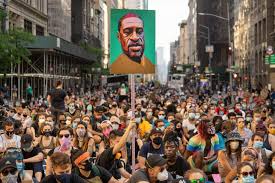
At the height of it, just after the First World War, an island smaller than Kansas controlled roughly a quarter of the world’s population and landmass.
To the architects of this colossus, the largest empire in history, each conquest was a moral achievement, but it was often imparted via the barrel of an Enfield Rifle.
The Harvard historian Caroline Elkins has spent more than two decades challenging the concept that the British Empire was ‘good’.
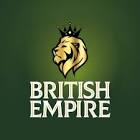
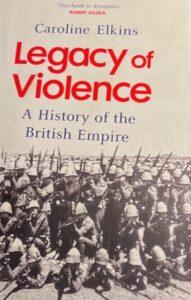 In her book “Legacy of Violence”, for example, she traces the British Empire’s arc across centuries and theatres of crisis.
In her book “Legacy of Violence”, for example, she traces the British Empire’s arc across centuries and theatres of crisis.
Britain claimed to be distinct from Europe’s colonial powers in its commitment to bringing rule of law, enlightened principles, and social progress to its colonies.
However Ms Elkins contends that Britain’s use of systematic violence was no better than that of its rivals. The British were simply more skilled at hiding it.
In Kenya, for example, the Mau Mau rebellion was brutally suppressed by British soldiers.
They killed indiscriminately, and also among the tactics they used was torture.
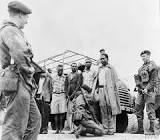
One report read: “With possibly a few exceptions…(the detainees)...are of the type which understands and reacts to violence”.
There have been harrowing accounts of what happened by survivors of the campaign against the Mau Mau.
There was a British Empire strategy in Kenya of detention, beatings, starvation, torture, forced hard labour, rape, and castration, designed to break the resistance of a people, the Kikuyu,
In 1957, a British colonial governor informed his superiors in London that “violent shock” was the only way to break down hard-core adherents, justifying a brutal campaign called Operation Progress.

More than a million men, women, and children were forced into barbed-wire village compounds and concentration camps for ‘re-education’ in circumstances that the colony’s attorney general at the time called “distressingly reminiscent of conditions in Nazi Germany or Communist Russia”.
Palestine was another one which showed the grisliness of the British Empire.

Not long after a 1947 United Nations (UN) vote divided the Mandate into Jewish and Arab states, Israeli security forces began emulating British methods, from killing civilians to flattening whole villages.
So next time you look at the honours list showing all those people who received one which celebrates the British Empire, stop and think about all these things…

The memories of Phil’s astonishing, decades long award-winning career in journalism (when spotting modern trends and challenging anachronisms were vital) as he was gripped by the rare neurological disabling condition Hereditary Spastic Paraplegia (HSP), have been released in a major book ‘A Good Story’. Order it now.
Tomorrow – why timings have always been critical for Phil during that career.





